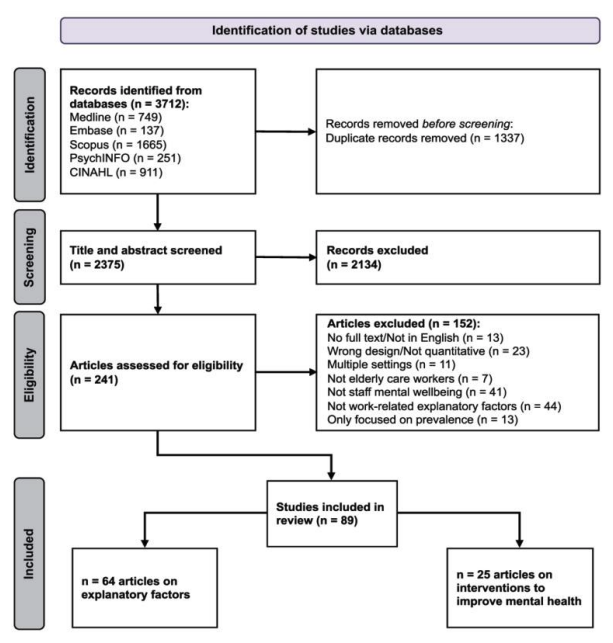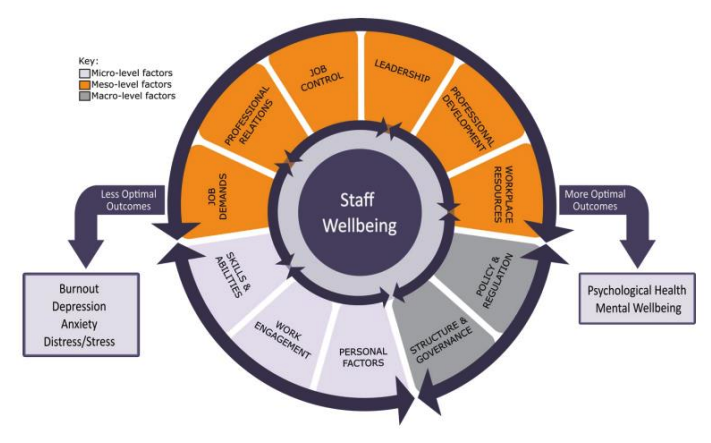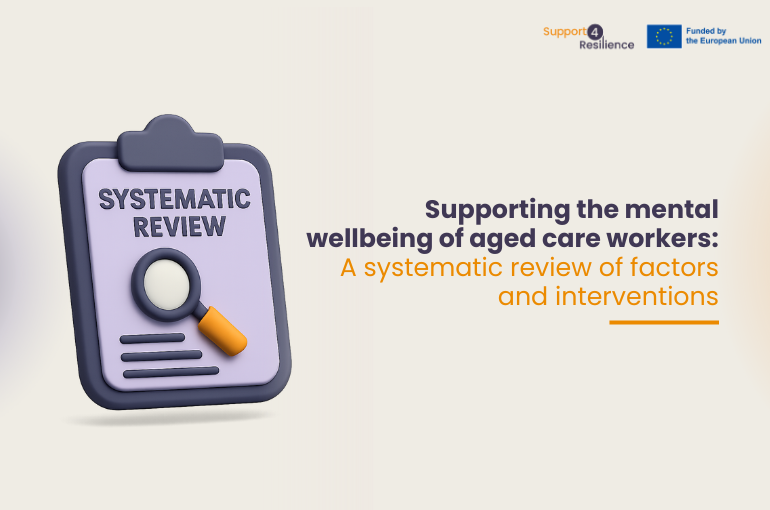A new scientific publication by members of the Support4Resilience consortium, now available in AIMS Public Health, sheds light on the critical
factors affecting the mental wellbeing of aged care workers — and identifies evidence-based interventions that can support them. The study proposes a multi-level model to help health and care systems build more resilient and supportive environments for their workforce.
A publication born from the Support4Resilience project
This review was conducted by researchers from several Support4Resilience partner institutions, including Macquarie University, the University of Stavanger, Universitat Jaume I, and others. It forms part of the project’s ongoing efforts to strengthen resilience in health and care systems across Europe and beyond.
The article, titled “Supporting the mental wellbeing of aged care workers: A systematic review of factors and interventions”, was published in June 2025 in the open-access journal AIMS Public Health. It offers one of the most comprehensive syntheses to date on mental health in the aged care workforce.
What does the review examine?
The team systematically reviewed 89 quantitative studies conducted over the past decade in 24 high-income countries. Their goal: to identify what helps — and what harms — the mental wellbeing of aged care workers, including nurses, care aides, and other frontline professionals.
Of the 89 studies, 64 focused on identifying contributing factors, while 25 specifically evaluated interventions aiming to improve workers’ mental weelbeing.

Search and review strategy
From this broad evidence base, the authors developed a new multi-level model that organizes the factors influencing staff wellbeing across three interconnected levels:
- Micro-level: individual aspects like personal attitudes, work engagement, or skills and abilities.
- Meso-level: organizational dimensions such as job demands, profesional relations, leadership and workplace resources.
- Macro-level: systemic factors like policies, regulation, or structure and governance.
This model includes 11 key themes and 39 sub-themes, and serves as a practical framework to guide organizations in developing targeted strategies to promote the mental wellbeing of aged care workers and improve resident care.

Factors Affecting Mental Wellbeing of Aged Care Workers
What did the review find?
The review confirmed that aged care workers’ mental wellbeing is influenced by a wide range of interrelated factors across system levels. At the micro level, personal characteristics such as age, coping strategies, and work engagement were commonly associated with outcomes like burnout, distress, and psychological wellbeing.
At the meso level, key contributors included job demands, the quality of professional relationships, levels of job control, leadership support,
professional development opportunities, and the availability of workplace resources.
At the macro level, structural elements such as national wage policies, regulation, and facility ownership played a significant role in shaping working conditions and wellbeing outcomes.
Of the 25 intervention studies reviewed, 24 focused on micro-level strategies, including relaxation techniques, mindfulness, emotion regulation, and behavioural management education. Many of these interventions reported short-term benefits; however, the review underscores that sustainable improvement depends on aligning efforts across all system levels — not just at the individual level.
Practical implications for aged care systems
The review concludes with several practical recommendations for aged care
organisations and decision-makers. These include:
- Prioritising mental wellbeing as a core organisational value, backed by policies that support flexibility and work-life balance.
- Assessing staff wellbeing regularly using standardised tools and involving staff in the process.
- Designing targeted interventions based on system-level understanding and staff feedback.
- Providing leadership with resources and structures to implement and evaluate interventions.
- Encouraging a collaborative work culture and offering training in selfcare and behavioural management.
These are just some of the strategies proposed to promote resilience and sustainable wellbeing in aged care environments.
Read the full study
For a complete overview of the findings, methodology, and full set of recommendations, we encourage you to read the full article:
Louise A Ellis, Tanja Schroeder, Maree Saba, Kate Churruca, Janet C Long, Annie Haver, Kristin Akerjordet, Kristiana Ludlow, Inger Johanne Bergerød, Sini Nevantaus, Jan-Willem Weenink, Zoe Gonzales, Samantha Spanos, Hilda Bø Lyng, Cecilie Haraldseid-Driftland, Daniel Adrian Lungu, Malin Knutsen Glette, Mari Lahti, Florin Tibu, Andreas Chatzittofis, Juana Maria Delgado-Saborit, Eila Kankaanpää, Viviana Wuthrich, Robyn Clay-Williams, Jeffrey Braithwaite, Siri Wiig. Supporting the mental wellbeing of aged care workers: A systematic review of factors and interventions[J]. AIMS Public Health, 2025, 12(2): 600-631. doi: 10.3934/publichealth.2025032

